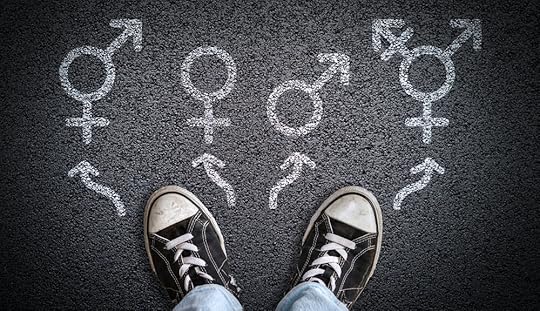Transitioning Norms
The gender spectrum has become increasingly mainstream over the past several years, thanks in large part to celebrities, athletes, and other highly visible folks breaking prior molds. Today there are numerous examples of people born with one gender assignment but identifying with another who go on to live full lives, experience great success, and find profound happiness. Not all, though, not by a long shot. And by the way, not all cis-gendered people hit these goals either (again, not by a long shot). But the uphill battle faced by the transgender community can be uniquely daunting.
This week, an important study showed that when kids live true to their gender identity, they experience their identity equally strongly. In case you need a refresher on terminology, cisgender means identifying as the gender that matches the sex assigned at birth; transgender means identifying not as the gender assigned at birth. According to this research, regardless of whether they are cis- or transgender, kids behave and develop socially in the same way. As the lead author put it, “If I saw the data of any random participant, I would not be able to tell if that child is transgender or cisgender, and I think that’s really interesting.” Moreover, the study’s authors concluded that when parents support their child’s gender identity expression, they are not driving a gender choice – in other words, parents don’t impose gender identity and parenting doesn’t make a child transition.
Some downsides to the study: for starters, researchers only looked at kids who had already socially transitioned, so the results cannot be generalized to kids pre-transition. Also, study subjects were disproportionately higher income and their parents tended to be highly educated. These kids presumably have more resources to help them through associated challenges (not to mention the medical costs of transitioning) and parents who are more likely to support the circumstances. As pointed out in the Newsweek piece, some data shows that when transitioning kids are not supported – or even acknowledged – they feel distress and may act out or retreat as a result.
I love this piece by Methods Man F. Perry Wilson, which walks through the details of the study. But if you’d rather read The Newsweek version that’s less science-y, keep reading below.

Trans children who live as the gender they identify with act and develop similarly to their cisgender counterparts, according to a new study.In the largest ever study of transgender children, scientists recruited 317 3 to 12-year-old transgender children, 189 of their siblings, and 316 cisgender kids who acted as controls. The transgender participants had… READ MORE



